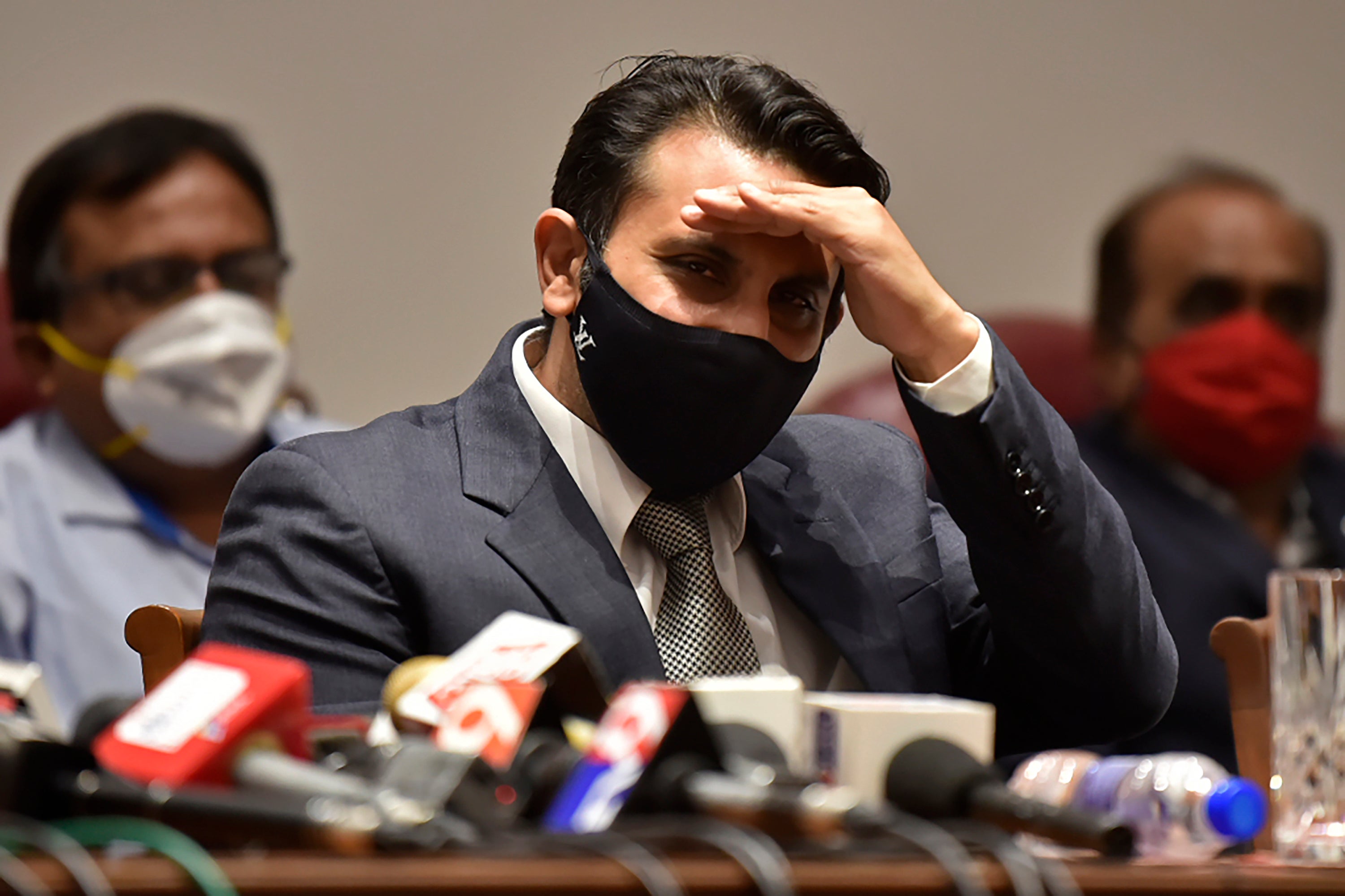India vaccine shortage will last months because government failed to prepare for second wave, says manufacturer
Adar Poonawalla claims unfair treatment and blames Indian government for lack of preparedness

Your support helps us to tell the story
From reproductive rights to climate change to Big Tech, The Independent is on the ground when the story is developing. Whether it's investigating the financials of Elon Musk's pro-Trump PAC or producing our latest documentary, 'The A Word', which shines a light on the American women fighting for reproductive rights, we know how important it is to parse out the facts from the messaging.
At such a critical moment in US history, we need reporters on the ground. Your donation allows us to keep sending journalists to speak to both sides of the story.
The Independent is trusted by Americans across the entire political spectrum. And unlike many other quality news outlets, we choose not to lock Americans out of our reporting and analysis with paywalls. We believe quality journalism should be available to everyone, paid for by those who can afford it.
Your support makes all the difference.The chief executive of India’s largest vaccine manufacturer has said the country will face a shortage until at least July because of the Modi government’s failure to prepare for the current second wave of the Covid-19 pandemic.
Despite its huge manufacturing capacity, India is facing a shortage of vaccines which has come in for criticism all the more as the country is simultaneously ravaged by a devastating Covid outbreak. The country has reported more than 300,000 cases a day for 10 days running, and is now the only country in the world to record more than 400,000 cases in a single day.
Adar Poonawalla, the chief executive of the Serum Institute of India (SII) which is manufacturing the Covid-19 vaccine developed by Astra Zeneca and the University of Oxford, told the FT they would increase the production of vaccines from the current rate of about 60 to 70 million doses a month to about 100 million by July.
SII, the world’s largest vaccine producer, was struggling to keep up with the domestic requirements for vaccines even before India opened its vaccination drive to all adults from 1 May, with widespread reports of vaccine centres running out long before the end of the day.
The country of over 1.3 billion people the world’s biggest vaccination drive in January 2021, but so far only 1.5 per cent of its population is fully vaccinated and only 10 per cent have received their first jab. The expansion of the vaccination drive to all adults needs 1.6 billion doses.
The shortage meant that only six states were able to expand their rollouts fully on 1 May, with several including Maharashtra and Delhi delaying the move until more vaccine stocks arrived.
The virulence of the second wave in India has also spiralled into an economic crisis, with more states going under lockdown posing a threat to the country’s growth that had only just started picking up in recent months. Experts believe that boosting the vaccination drive could offer the Indian economy a chance to bounce back.
Mr Poonawalla, who was facing severe criticism, recently left for London to join his wife and children following what he called the threats from politicians and “powerful men” demanding quick delivery of the Covid-19 vaccine, reported The Times.
He told the Financial Times that his company’s image was maligned by the Indian government over the shortage and price of vaccines while saying it is the government that is responsible for that and not the company.
Mr Poonawalla said SII was unable to ramp up production because “there were no orders” from the government, saying that he had been “victimised very fairly and wrongly” for what amounted to the Modi administration’s failure to prepare in January while case numbers were still low.
“Everybody really felt that India had started to turn the tide on the pandemic,” he said.
India ordered 21 million doses from the Serum Institute of India but did not indicate when it would buy more. The government abruptly added an order for 110 million doses in March when there was a sudden spike in cases, and in April offered SII a loan to boast production once case numbers were into the hundreds of thousands daily.
SII’s jabs have accounted for nearly 90 per cent of doses administered in the country, while homegrown vaccine maker Bharat Biotech accounts for the rest.
The Indian government had allocated £3.41bn in its national budget in January 2021 for the Covid-19 vaccination programme.



Join our commenting forum
Join thought-provoking conversations, follow other Independent readers and see their replies
Comments